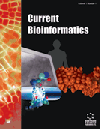-
s Network Propagation-based Identification of Oligometastatic Biomarkers in Metastatic Colorectal Cancer
- Source: Current Bioinformatics, Volume 19, Issue 2, Feb 2024, p. 129 - 143
-
- 01 Feb 2024
Abstract
Background: The oligometastatic disease has been proposed as an intermediate state between primary tumor and systemically metastatic disease, which has great potential curable with locoregional therapies. However, since no biomarker for the identification of patients with true oligometastatic disease is clinically available, the diagnosis of oligometastatic disease remains controversial. Objective: We aim to identify potential biomarkers of colorectal cancer patients with true oligometastatic states, who will benefit most from local therapy. Methods: This study retrospectively analyzed the transcriptome profiles and clinical parameters of 307 metastatic colorectal cancer patients. A novel network propagation method and network-based strategy were combined to identify oligometastatic biomarkers to predict the prognoses of metastatic colorectal cancer patients. Results: We defined two metastatic risk groups according to twelve oligometastatic biomarkers, which exhibit distinct prognoses, clinicopathological features, immunological characteristics, and biological mechanisms. The metastatic risk assessment model exhibited a more powerful capacity for survival prediction compared to traditional clinicopathological features. The low-MRS group was most consistent with an oligometastatic state, while the high-MRS might be a potential polymetastatic state, which leads to the divergence of their prognostic outcomes and response to treatments. We also identified 22 significant immune check genes between the high-MRS and low- MRS groups. The difference in molecular mechanism between the two metastatic risk groups was associated with focal adhesion, nucleocytoplasmic transport, Hippo, PI3K-Akt, TGF-β, and EMCreceptor interaction signaling pathways. Conclusion: Our study provided a molecular definition of the oligometastatic state in colorectal cancer, which contributes to precise treatment decision-making for advanced patients.


